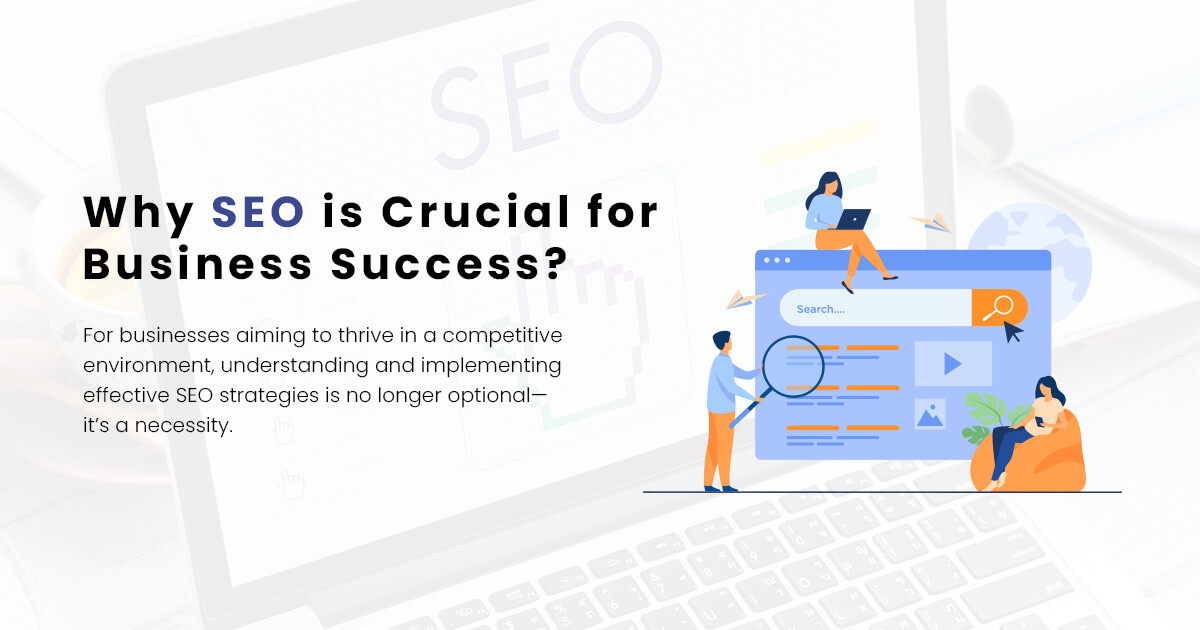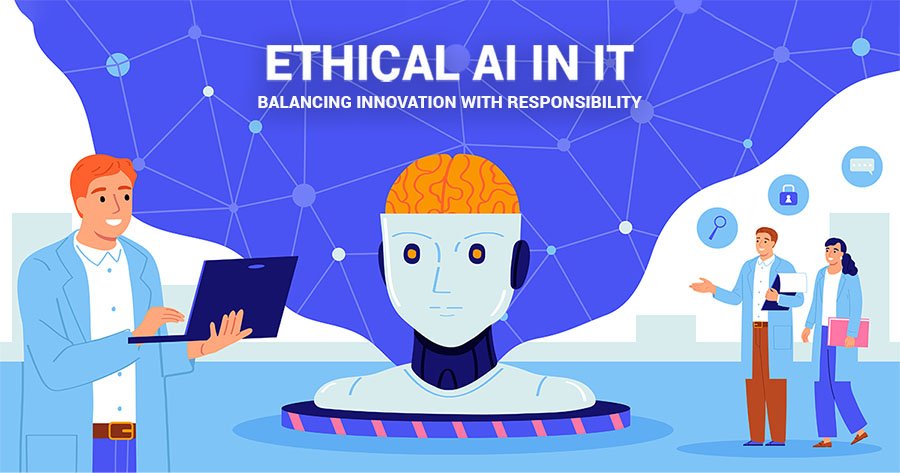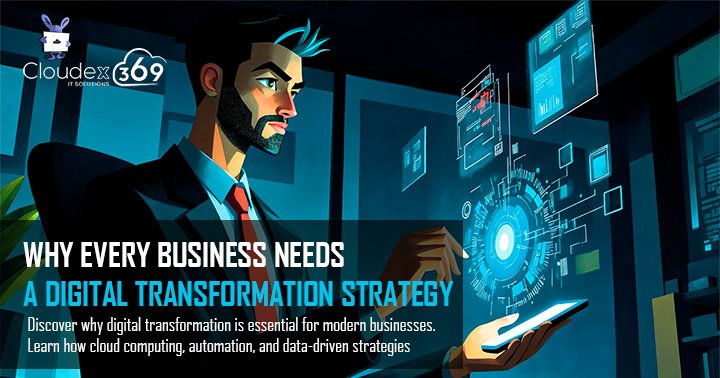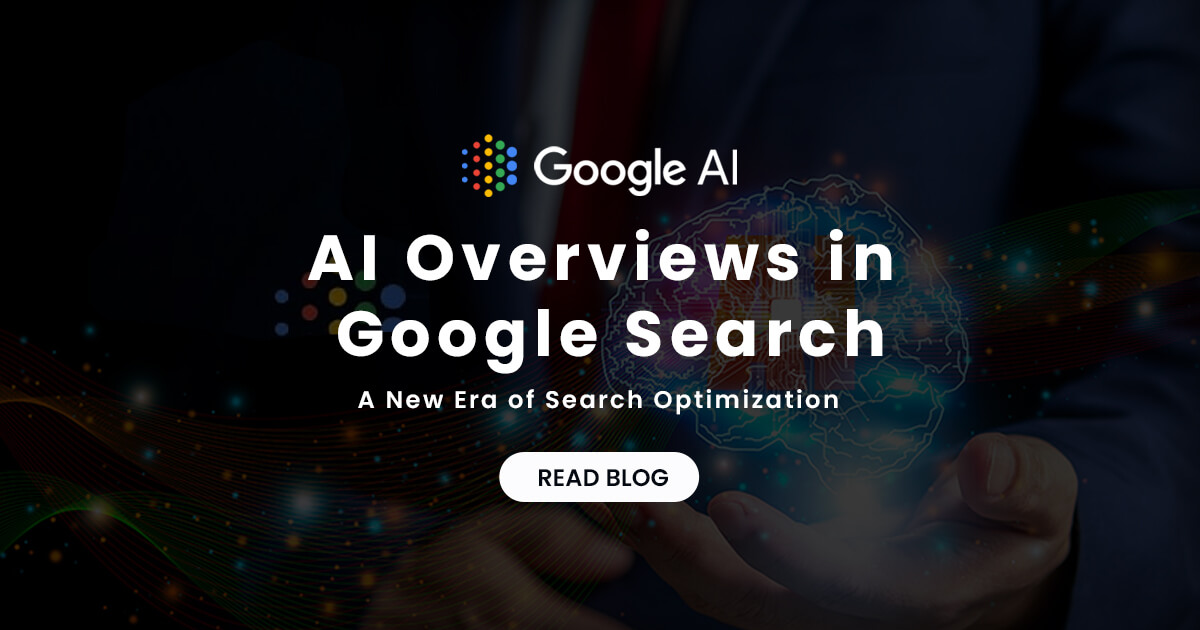In today’s digital landscape, the term “SEO” (Search Engine Optimization) has become synonymous with online success. For businesses aiming to thrive in a competitive environment, understanding and implementing effective SEO strategies is no longer optional—it’s a necessity. But why exactly is SEO so important for business success? In this blog, we’ll delve into the various reasons why SEO is a game-changer, how it impacts your business, and why investing in SEO is one of the smartest decisions you can make.
What is SEO and How Does it Work?
SEO, or Search Engine Optimization, is the practice of optimizing your website and its content to rank higher in search engine results pages (SERPs). The higher your website ranks, the more visibility it gains, leading to increased traffic and, ultimately, more conversions.
Search engines like Google use complex algorithms to determine which pages are most relevant to a user’s search query. These algorithms consider hundreds of factors, including keywords, content quality, site speed, mobile-friendliness, and backlinks, to name a few. SEO is all about ensuring that your website aligns with these factors, giving it the best possible chance to rank highly.
The Importance of SEO for Business Success
1. Increased Visibility and Traffic
The most obvious reason SEO is crucial for business success is that it significantly increases your website’s visibility. When your website appears on the first page of search results, it is far more likely to be clicked on by users. In fact, studies show that the first organic search result on Google receives approximately 28.5% of clicks, while the second result gets around 15.7%, and the numbers drop drastically from there.
By optimizing your site to rank higher, you attract more visitors, which translates into more potential customers. The more traffic your site receives, the greater the opportunities for conversions, sales, and revenue growth.
2. Builds Credibility and Trust
Ranking high in search engine results doesn’t just boost visibility; it also enhances your credibility. Users tend to trust websites that appear on the first page of Google more than those buried on page two or beyond. This trust is crucial because it influences a user’s decision to click on your site and engage with your content.
Effective SEO practices, such as creating high-quality content, acquiring backlinks from reputable sources, and optimizing for user experience, contribute to building your site’s authority. Over time, this authority translates into greater trust among users, making them more likely to choose your products or services over competitors.
3. Cost-Effective Marketing
Compared to traditional advertising methods, SEO is remarkably cost-effective. While paid advertising (PPC) can drive traffic to your site, it requires continuous investment. Once you stop paying for ads, the traffic stops too. On the other hand, SEO provides long-term benefits. With consistent effort and updates, your optimized content can continue to attract traffic for months or even years after it’s published.
Moreover, the organic traffic generated by SEO is free. Instead of paying for every click, you’re investing in a sustainable strategy that can yield ongoing results. This makes SEO one of the most cost-effective marketing tactics available, particularly for small businesses with limited budgets.
4. Enhances User Experience
SEO isn’t just about search engines; it’s also about creating a better experience for your website visitors. Google prioritizes sites that offer a positive user experience, which means your site’s usability, design, and content all play a role in your SEO performance.
SEO practices like optimizing page load speed, ensuring mobile-friendliness, and creating easy-to-navigate site structures contribute to a smoother user experience. When users find your site easy to use and relevant to their needs, they are more likely to stay longer, explore more pages, and ultimately convert. This user engagement sends positive signals to search engines, further boosting your rankings.
5. Targets Quality Traffic
SEO is highly targeted, which means it attracts visitors who are actively searching for the products, services, or information you offer. By optimizing your site for specific keywords and phrases relevant to your business, you can reach a more qualified audience.
This targeted approach ensures that the traffic coming to your site is more likely to convert into customers. Unlike traditional advertising, which reaches a broad audience, SEO helps you connect with individuals who are already interested in what you have to offer, increasing the likelihood of successful conversions.
6. Provides Measurable Results
One of the significant advantages of SEO is its measurability. With tools like Google Analytics, you can track virtually every aspect of your SEO performance, from traffic and bounce rates to keyword rankings and conversion rates. This data allows you to assess the effectiveness of your SEO strategies and make informed decisions to improve your outcomes.
By analyzing this data, you can identify which strategies are working, which keywords are driving the most traffic, and where improvements are needed. This level of insight ensures that your SEO efforts are always aligned with your business goals.
7. Competitive Advantage
In today’s crowded marketplace, standing out from the competition is more challenging than ever. SEO gives you a competitive edge by helping your business appear more prominently in search results than your competitors.
If your competitors are investing in SEO and you’re not, they’re likely to capture more of the market share. Conversely, if you’re proactive with your SEO efforts, you can outperform competitors and position your business as a leader in your industry. This competitive advantage can be the difference between a potential customer choosing your business over another.
8. Adapting to the Changing Consumer Behavior
Consumer behavior is constantly evolving, and more than ever, people are turning to search engines to find information, products, and services. SEO allows your business to adapt to these changes by keeping your content relevant and discoverable.
With the rise of voice search, mobile search, and local search, SEO practices have also evolved. By staying up-to-date with the latest SEO trends and algorithms, your business can continue to meet the changing needs of your customers, ensuring sustained growth and success.
9. Long-Term Strategy
SEO is not a quick fix but a long-term strategy. Unlike some marketing tactics that may deliver immediate but short-lived results, SEO builds over time. The more you work on your SEO, the stronger your site becomes, leading to even better rankings and more significant traffic.
As your site gains more authority and trust, it becomes harder for competitors to overtake you in search rankings. This long-term approach ensures that your business continues to reap the benefits of SEO well into the future.
Conclusion
In conclusion, SEO is a critical component of any successful digital marketing strategy. It increases visibility, builds trust, enhances user experience, and drives targeted, high-quality traffic to your site. Whether you’re a small business or a large enterprise, investing in SEO is essential for achieving sustained growth and staying competitive in today’s digital landscape.
By understanding the importance of SEO and implementing best practices, your business can enjoy increased online presence, better customer engagement, and ultimately, greater success. Don’t wait—start optimizing your site today and watch your business thrive.




